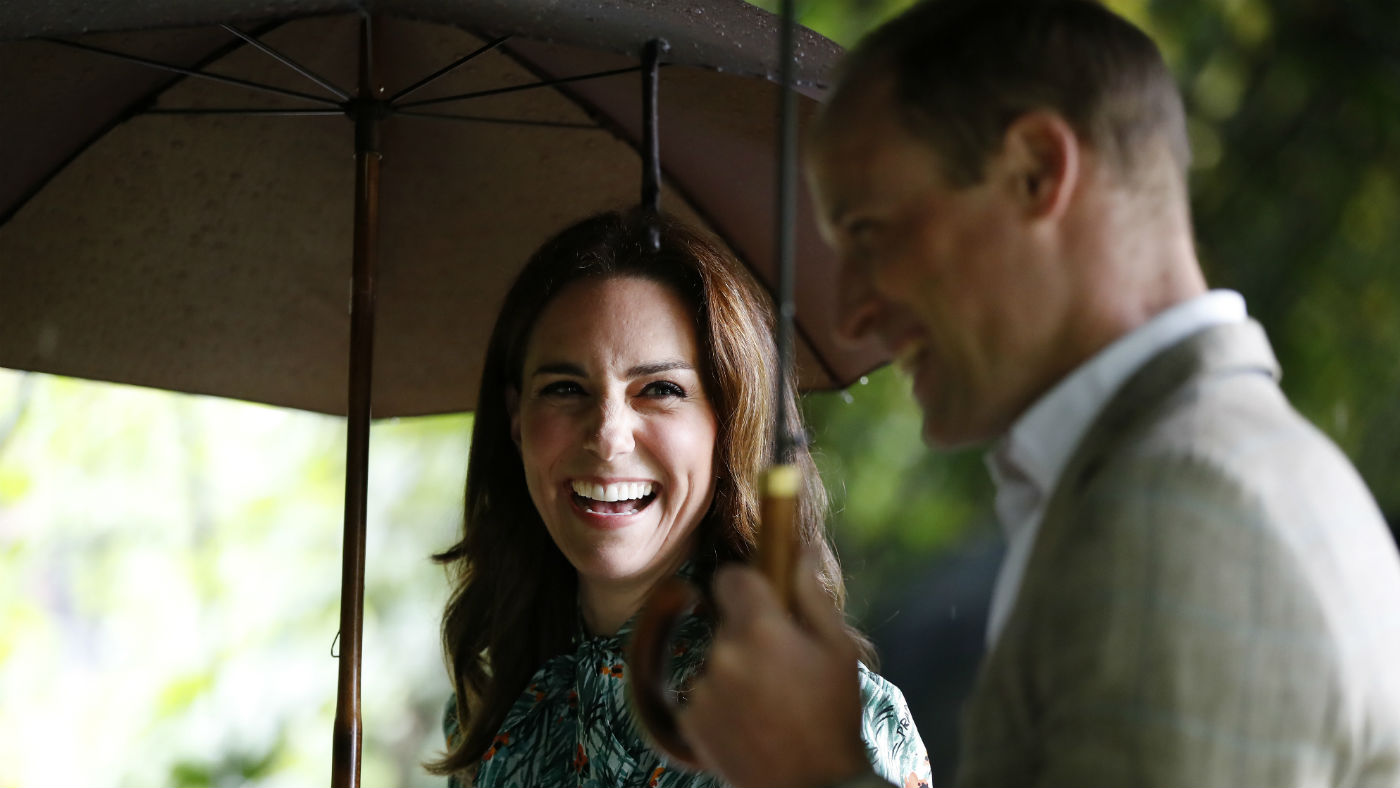Kate Middleton vs Closer: what the ruling means
Will the damages awarded to the royals for topless photos set a precedent?

A free daily email with the biggest news stories of the day – and the best features from TheWeek.com
You are now subscribed
Your newsletter sign-up was successful
A French court has ruled that topless photographs of Kate Middleton taken by paparazzi and published in a French celebrity magazine were an invasion of privacy.
The ruling, just a day after the announcement that the Duchess of Cambridge is pregnant with her third child, brings to an end a five-year legal case.
Earlier this year, six people, including three photographers, were tried after long-lens pictures of the couple on holiday in France in 2012 were published in Closer magazine and a local newspaper, La Provence.
The Week
Escape your echo chamber. Get the facts behind the news, plus analysis from multiple perspectives.

Sign up for The Week's Free Newsletters
From our morning news briefing to a weekly Good News Newsletter, get the best of The Week delivered directly to your inbox.
From our morning news briefing to a weekly Good News Newsletter, get the best of The Week delivered directly to your inbox.
Similar images later appeared in Italian, Swedish and Danish publications after several British papers turned down the chance to buy the photos. The Irish Daily Star also ran the images, but its editor resigned after a public outcry and accusations from a Palace spokesman that the publication of the images was "grotesque and totally unjustifiable".
Now the court has awarded the royal couple €100,000 (£91,000) in damages and interest and ordered both the editor and the owner of the glossy magazine to pay a fine of €45,000 (£41,000) each, the maximum in each case. Closer editor Laurence Piea and publisher Ernest Mauria could have been sent to prison for up to a year, but retained their freedom.
While the amount is one of the highest ever in a privacy case in France, "it is a fraction of the £1.4m the couple wanted over the grainy images", says the Daily Mail.
Neither of the royals attended the court sessions over the years although Prince William did present statements attacking the paparazzi and claiming the impact of the topless photographs was "all the more painful" given the link between harassment by the press and the death of his mother, Diana, Princess of Wales.
A free daily email with the biggest news stories of the day – and the best features from TheWeek.com
The six defendants argued the couple regularly allow their private lives to be sold to millions of people around the world.
During May's hearing, The Guardian reported comments made by Closer's lawyer, Paul-Albert Iweins who attacked the "Anglo-Saxon reasoning behind punitive damages and compensation" and said the trial was hypocritical.
"The public and private lives of the royal couple are so closely linked as to be inseparable," Iweins said, adding it was of "public interest to know that future heirs to the throne have a solid relationship and are getting on well" and that the photographs cast the young couple in a positive light.
While yesterday's guilty verdict was certainly not a surprise, "what was interesting about this case was that the royal couple and their lawyers here were pushing for a much, much larger amount in damages", says the BBC's Hugh Schofield, "in effect, saying the royal couple is different".
"There was an attempt to turn this into a different kind of affair, one in which there would be almost punitive damages awarded against Closer magazine", says the Paris Correspondent.
As it is, while the payout is substantial, is it not the "precedent-setting kind of damages which would really act as a deterrent to Closer magazine and others like it in the future".
-
 6 of the world’s most accessible destinations
6 of the world’s most accessible destinationsThe Week Recommends Experience all of Berlin, Singapore and Sydney
-
 How the FCC’s ‘equal time’ rule works
How the FCC’s ‘equal time’ rule worksIn the Spotlight The law is at the heart of the Colbert-CBS conflict
-
 What is the endgame in the DHS shutdown?
What is the endgame in the DHS shutdown?Today’s Big Question Democrats want to rein in ICE’s immigration crackdown
-
 Epstein files topple law CEO, roil UK government
Epstein files topple law CEO, roil UK governmentSpeed Read Peter Mandelson, Britain’s former ambassador to the US, is caught up in the scandal
-
 Iran and US prepare to meet after skirmishes
Iran and US prepare to meet after skirmishesSpeed Read The incident comes amid heightened tensions in the Middle East
-
 Israel retrieves final hostage’s body from Gaza
Israel retrieves final hostage’s body from GazaSpeed Read The 24-year-old police officer was killed during the initial Hamas attack
-
 China’s Xi targets top general in growing purge
China’s Xi targets top general in growing purgeSpeed Read Zhang Youxia is being investigated over ‘grave violations’ of the law
-
 Panama and Canada are negotiating over a crucial copper mine
Panama and Canada are negotiating over a crucial copper mineIn the Spotlight Panama is set to make a final decision on the mine this summer
-
 Why Greenland’s natural resources are nearly impossible to mine
Why Greenland’s natural resources are nearly impossible to mineThe Explainer The country’s natural landscape makes the task extremely difficult
-
 Iran cuts internet as protests escalate
Iran cuts internet as protests escalateSpeed Reada Government buildings across the country have been set on fire
-
 US nabs ‘shadow’ tanker claimed by Russia
US nabs ‘shadow’ tanker claimed by RussiaSpeed Read The ship was one of two vessels seized by the US military